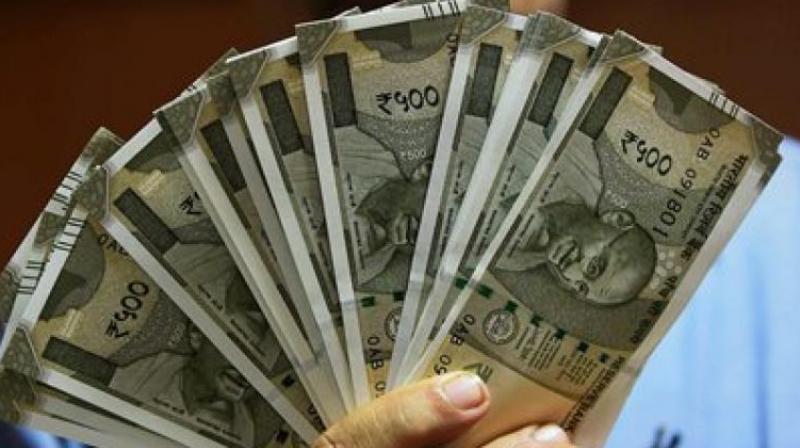Govt likely to announce lower borrowing programme next week: sources
Investors were also worried whether govt will be able to stick to its fiscal deficit target of 3.3 per cent of gdp.

New Delhi: The Indian government plans next week to announce lower than expected borrowing needs for the second half of the fiscal year ending in March, said four people briefed on the matter, in a move that could remove some nervousness in the bond market.
Senior Indian government officials met with a select group of market participants earlier this week and assured them that the bond market borrowing programme for October to March would be lower than expected, said the sources directly aware of the matter, who asked not to be named as the discussions were private.
The meeting, chaired by the finance ministry’s economic affairs secretary Subhash Chandra Garg, was called to get feedback on the current volatility in bond and currency markets, as well as assure the market players about the government’s intention to stick to its fiscal deficit and borrowing targets, the sources said.
“It was very clearly communicated that the government is sensitive to market apprehensions and will steer away from any negative or populist steps,” said one official. “There won’t be any rise in the borrowing program, there can only be a reduction if any,” he said, adding that the government expected a pick up in revenues from the goods and services tax and small savings schemes.
The 10-year benchmark bond yield fell by four basis points to 8.05 per cent following the initial report that the government planned to announce a reduction in its borrowing needs, but the yield inched up to 8.07 per cent later in the day.
The sources said the revised borrowing number will be announced on September 28.
Bond traders said they had previously been expecting the government to aim to raise around 2.7 trillion rupees during October-March, after raising 2.88 trillion rupees during the April-September.
The remainder of the overall 6.06 trillion rupees ($83.81 billion) gross borrowing programme for the fiscal year ending March 2019 is accounted for by plans for bond buy backs.
Indian bonds have fallen to their lowest in four years while the rupee has been the worst performer in Asia losing more than 13 percent since start of 2018 amid an emerging market rout on concerns over global trade wars, rising crude prices and potential rate hikes by the U.S. Federal Reserve.
“The rising bond yield, currently at over 8 percent on 10 year bonds is a major concern,” a second official said.
The 10-year bond rose to 8.23 per cent last week, its highest since Nov 14, 2014 while the rupee fell to a life time low of 72.99 to the dollar on September 18.
In addition to global factors, India’s macro-economic fundamentals have weakened sharply with the balance of payments slipping into the red for the first time in six quarters as dollar outflows picked up, current account deficit widened, partly as result of higher prices for imported oil.
Investors were also worried whether the government will be able to stick to its fiscal deficit target of 3.3 per cent of gross domestic product, as spending typically picks up before elections, and India is set for a general election by May next year.
However, two of the sources who attended the meeting said finance ministry officials had given assurances that fiscal slippage would be avoided, and the government would work with the central bank to support markets.

